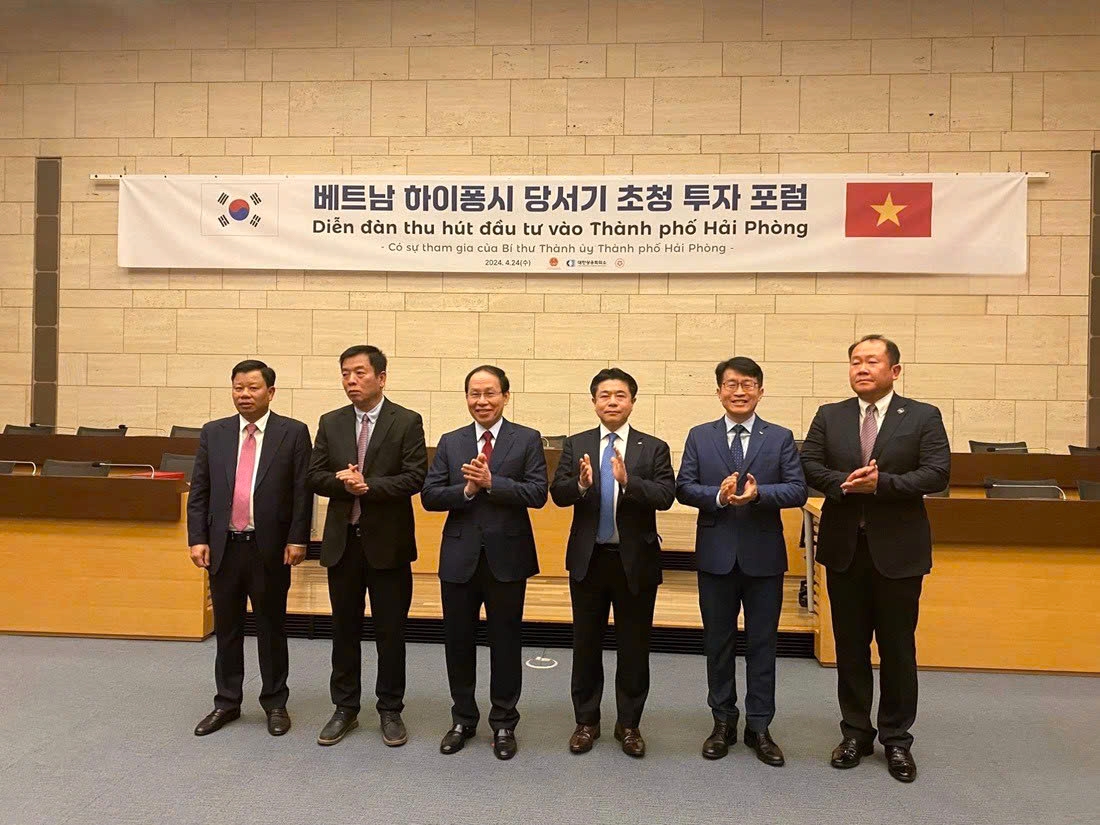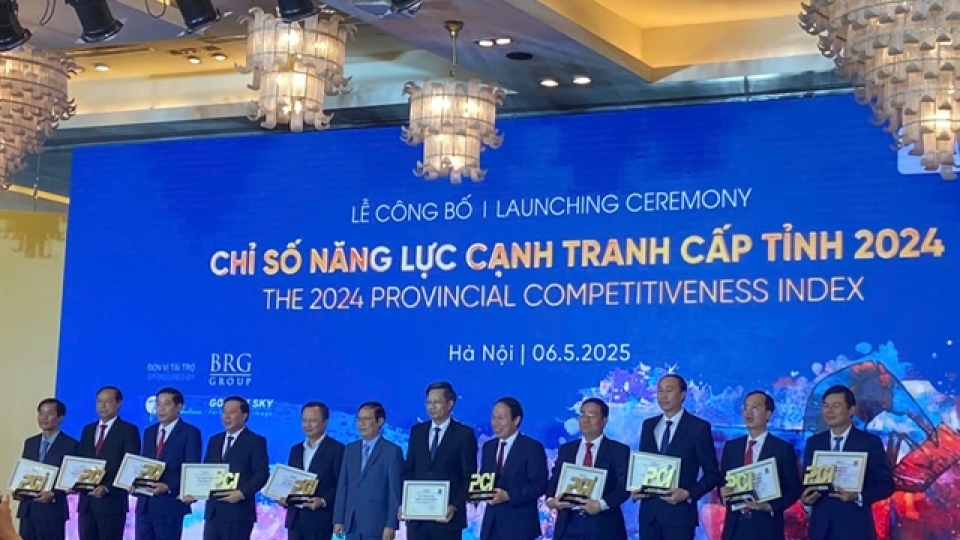Hai Phong pledges to increase business connectivity with RoK
VOV.VN - The northern port city of Hai Phong creates favourable conditions for foreign firms, including those from the Republic of Korea (RoK), to do long-term, efficient and sustainable business in the locality, said Le Anh Quan, vice chairman of the Hai Phong municipal administration.

Speaking at a seminar titled Opportunities and Challenges for Vietnamese and Korean Enterprises in Hai Phong City held on May 20, Quan, who is also chairman of the Vietnam – RoK Friendship Association, Hai Phong chapter, affirmed that the city highly values practical contributions of the business community, especially the Korean enterprises that have closely supported its development.
Currently, the RoK ranks first in total registered investment capital in Hai Phong totalling US$14.2 billion and second in the number of projects (186 projects). Korean-led projects have been operating effectively, producing many high-tech products that boost exports, enhance scientific and technological capabilities, generate employment, and contribute significantly to local budget.
Hai Phong will continue improving its investment climate and support businesses in accessing land, credit, and skilled labour, he assured delegates.
The city also aims to assist domestic businesses, especially small ones, in building partnerships with FDI enterprises and adopting advanced technologies to collaborate effectively with Korean firms, he added.
Seog Myeong Gug, chairman of the Korean Business Association in Hai Phong (KOCHAM Hai Phong), noted that the seminar offered opportunities to Korean and Vietnamese businesses to explore cooperation, particularly in supporting industries and human resources. He acknowledged that Korean firms previously sourced supporting products from Korea or other countries, at high costs, and many are now actively seeking local partnerships in Hai Phong and Vietnam.
Lee Kyung Hee, vice chairman of KOCHAM Hai Phong, underlined the need to improve education and vocational training to international standards, especially in key industries such as industrial engineering, automation, electronics, and artificial intelligence (AI). He also suggested expanding Korean and foreign language education, along with soft skills training in communication, teamwork, critical thinking, and problem-solving.
He recommended building joint training programmes between Vietnamese and Korean vocational institutions, and encouraging Korean businesses to engage in curriculum development and offer internships so as to meet the actual needs of Korean enterprises in the city.



